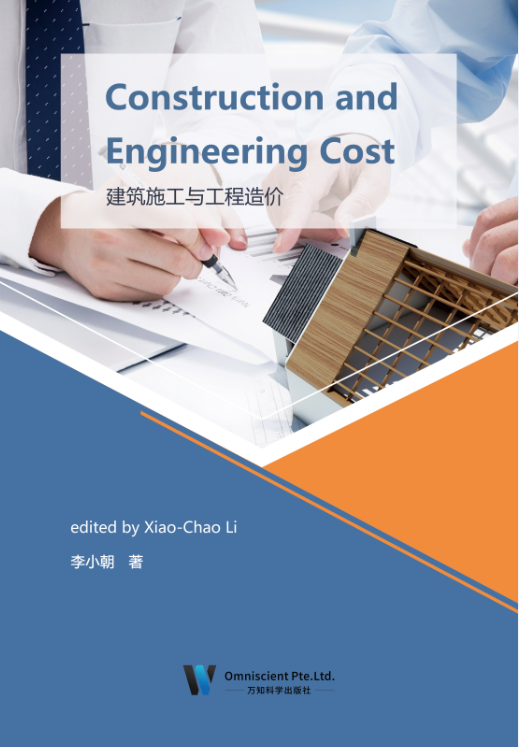
Preface
In recent years, data statistics show that in 20 industries of the national economy, construction industry has always ranked the top, accounting for 5.4% of China's GDP. And historical data shows that the added value of the construction industry has grown from 13.82 billion yuan in 1978 to 1013.4 billion yuan in 2005, with an average annual growth rate of 17%. It has become an important pillar industry in the national economy. In addition to short-term fluctuations in the early 1990s, the added value of construction industry has maintained a share of 5% to 6% in GDP, and the status of the pillar industry is very stable. In addition, the construction industry also creates about 30 billion U.S. dollars in foreign exchange earnings for the country every year, which is an important force for China's foreign trade and economic cooperation. As a pillar industry, the construction industry not only has strengthened its position in the process of industrialization and urbanization in China, but also has become the key to social and economic stability because of its huge absorption of rural surplus labor force. However, behind the rapid growth, due to the unscientific decision-making of engineering projects, unreasonable engineering design and inability to keep up with engineering management, the investment scale of many projects is out of control and the construction quality is unstable, resulting in huge waste of investment. In construction projects, there are widespread "uncompleted projects" and "projects with three exceeding problems", which seriously affect the implementation of national plans and financial budgets, and interfere with the normal economic order in the field of engineering construction. The above facts indicate that there are problems in the construction management of existing building projects in China, especially the cost management mode that plays an important role in project management has been difficult to meet the needs of project cost management at this stage. In a sense, the shortcoming in theory and method of project cost management is a source of many project management problems. There is an urgent need to establish a scientific and standardized management system and operation mechanism of engineering construction industry, and a scientific and standardized project cost management system and operation mechanism in China. This book thoroughly analyzes the construction technology in each process and stage, comprehensively interprets the progress, quality, safety, cost control and management of the construction industry, and discusses the cost budget of the construction combined with the project cost, and provides a theoretical basis for the technical support and management practice of the construction industry.
前言
近几年,数据统计显示,在国民经济 20 个行业中,建筑业始终名列前茅,占我国国内生产总值的 5.4%。从历史数据看,建筑业增加值从 1978 年的138.2 亿元发展到 2005 年 10134 亿元,年均增长 17%,业已成为国民经济中重要的支柱产业。除了 90 年代初有短期的波动外,建筑施工业增加值在国内生产总值中一直保持着 5% ~ 6% 左右的份额,支柱产业的地位十分稳固。此外,施工业还每年为国家创造 300 亿美元左右的外汇收入,是我国对外贸易和经济合作的一支重要力量。作为支柱产业的建筑施工业,在我国工业化和城市化进程中,不仅地位不断增强,更因其对农村剩余劳动力巨大的吸纳作用,使其已成为社会经济稳定的关键。但在高速增长的背后,由于工程项目决策不科学,工程设计不合理,工程管理跟不上,而导致诸多工程的投资规模失控、施工质量不稳定,造成了投资的巨大浪费。在建设项目中普遍存在着“烂尾工程”和“三超工程”,严重影响国家计划、财政预算的执行,干扰工程建设领域的正常经济秩序。上述事实说明,我国现有建筑工程施工管理中存在问题,尤其是在工程管理中起重要作用的造价管理模式已经难以满足现阶段工程造价管理的需要了。从某种意义上讲,目前工程造价管理理论和方法上的缺陷是导致工程管理问题层出不穷的根源。现实迫切需要建立起我国科学规范的工程建筑业管理体制和运行机制,科学规范的工程造价管理体制和运行机制。本书深入剖析建筑工程各工艺、各阶段施工技术,全面解读建筑施工业进度、质量、安全、成本控制与管理,并结合工程造价对建筑施工的成本预算问题进行探讨,为建筑施工行业技术支持与管理实践提供可参考的理论依据。

Xiao-Chao Li, male, the Han nationality, born in Xianyang City of Shaanxi Province in March 1975. In July 1998, he graduated from Xi’an University of Architecture and Technology majoring in industrial electrification and automation. After graduation, he has worked in Xianyang Construction Project Quality and Safety Supervision Station, and was responsible for the quality and safety supervision of major construction projects in the city for a long time. In March 2002, He was jointly awarded by the Xianyang Municipal Government and the Xianyang Municipal Committee as an advanced individual in major infrastructure projects. In July 2008, he received his Master's Degree in Architecture and Civil Engineering from Xi'an University of Architectural Science and Technology. He is now a national registered supervision engineer, national registered A construction division, reviewer of Xianyang High-Quality Engineering Award and tendering and bidding projects.
李小朝,男,汉族,1975年三月生,陕西省咸阳市人,1998年七月毕业于西安建筑科技大学工业电气自动化专业,毕业后在咸阳市建设工程质量安全监督站工作,长期负责市内重大建设项目的质量安全监督工作。2002年三月被咸阳市政府和咸阳市委共同受予重大基础工程建设先进个人。2008年七月取得西安建筑科技大学建筑与土木工程领域硕士专业学位。现为国家注册监理工程师,国家注册一级建造师,咸阳市优质工程奖评审专家库成员招投标评审专家库成员。